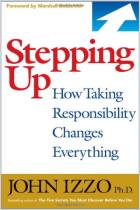Rote memorization, rigid hierarchies and repetition once dominated theories and practices of efficiencies, but no more. New leaders – “changemakers” – redefine priorities and embrace new approaches. Henry F. De Sio, Jr., former deputy assistant to the president during the Barack Obama administration and an expert on the social impact of change, outlines case histories of meaningful social change. His reliable blueprint shows how anyone can become a change maker. De Sio supports his ideas with compelling examples of big-hearted visionaries who built collaborative teams and followed their own rules.
Change itself changes – and reshapes the world.
Radical change has become the one reliable constant in the world, as even change itself is changing. To figure out why and how, consider what factors distinguish the substantial, baffling change of modern times from the old-style change of decades ago. The radical shifts in the nature of change are hard to decipher, but the development has a plus side: More people than ever before can now become dominant, influential players in all corners of a radically transformed society.
In the past, efficiency depended on rote repetition. Hierarchical organizations were locked into a traditional “one-leader-at-a-time” mode. Oppressive bureaucracies thrived under these inefficient strictures, frustrating creativity, innovation and every independent-thinking employee. Happily, this antiquated, cumbersome system is now fracturing. Old barriers are vanishing and new opportunities for full participation are opening for everyone. The one-leader-at-a-time system is giving way to a new system of “everyone-leading-in-every-moment.”
For a long time, change...
Former deputy assistant to President Barack Obama, Henry F. De Sio, Jr. is a social-sector executive, leadership advisor, campaign strategist and international keynote speaker.





















Comment on this summary or 开始讨论